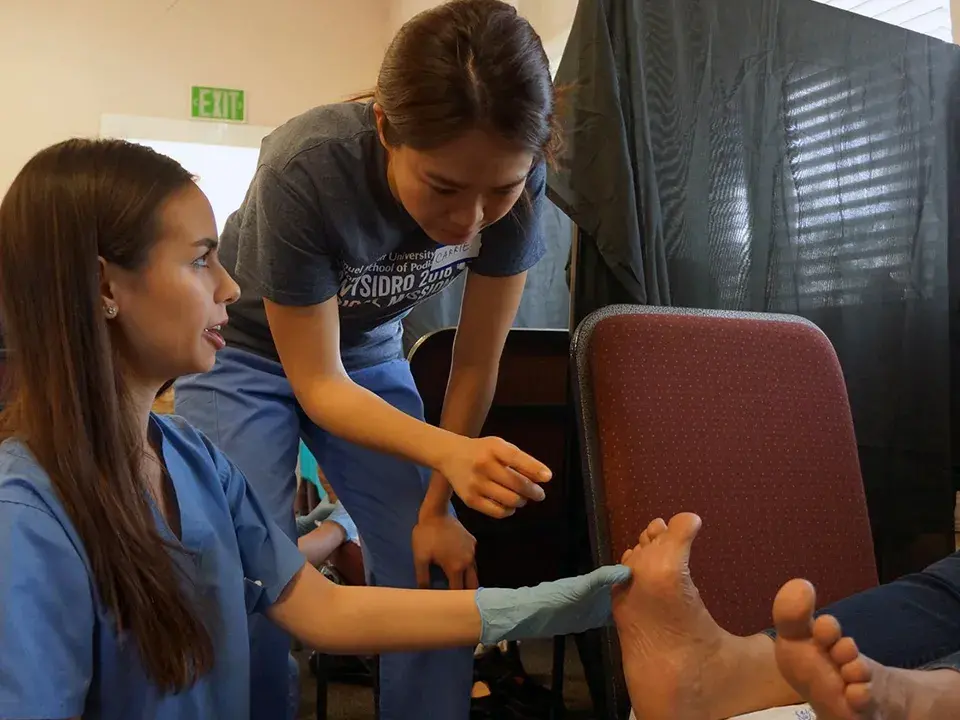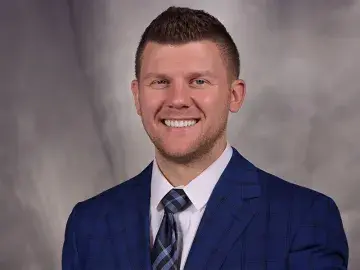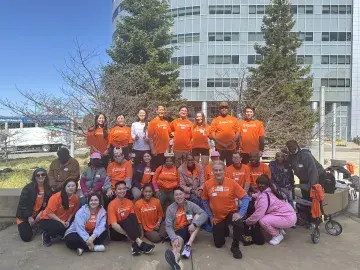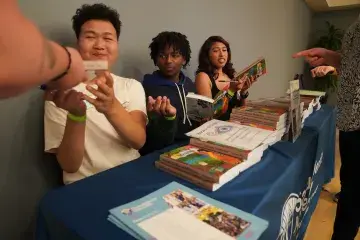Service Trip to Mexican Border is Personal for Podiatry Student

When Samuel Merritt University (SMU) student Juan Ceja Solorio leaves for the U.S.-Mexican border today to help prepare for a medical service trip, his experience with his own family will not be far from his mind.
The third-year student at SMU’s California School of Podiatric Medicine was born in Mexico and grew up in a Spanish-speaking community in Los Angeles.
“English was a struggle for my parents, particularly in health care interactions,” Solorio says. “The language barrier was a significant hindrance to their health and understanding of what medications they should be taking.”
For the 11th consecutive year, SMU will run a free health care clinic March 15 and 16 in San Ysidro, a small town between San Diego and Tijuana that hosts one of the busiest land border-crossing areas in the Western Hemisphere.
This year, 15 podiatry students will team up with six Family Nurse Practitioner students and three faculty clinicians to evaluate and treat foot and ankle conditions as well as conduct health screenings for diabetes and vascular disease. Nearly half of the participants, including Solorio, are Spanish speakers.
While the SMU students gain clinical experience on the trip, Solorio says most volunteer their services over their spring break as a way of “giving back” and pay for their own travel expenses without the promise of reimbursement.
As in previous years, the students will set up a clinic at the Centro Romero community center by splitting up the room with accordion dividers so they can see 10 to 12 patients at a time, spending up to an hour with each one and often with entire families.
Most of the more than 100 patients who attend the clinic each year lack access to health care either because they are undocumented or lack health insurance. They range from young children to elderly, and some cross the border from Mexico to seek care.
“It’s really something I take personally to give back to this particular community,” says Solorio, who is making his third service trip to the border town.
To encourage people to show up at this year’s clinic, Solorio is traveling to San Ysidro a few days early to get the word out by posting flyers at churches, grocery stores, and community centers.
Solorio, who is a co-director of this year’s medical mission, says there is a high incidence of diabetes among the people who seek care. He says the patients often don’t understand the importance of regular glucose testing and foot evaluations.
“Education is a big part of what we do,” he says. “There’s a big knowledge gap there that we’re helping to fill.”
To help make future trips even more beneficial to the San Ysidro community, the SMU team will conduct a survey that asks patients questions about diabetes both before and after their visit to the clinic. The students hope to see how their answers change so they can better identify the knowledge deficits and determine the impact of the clinic on the community.
The SMU volunteers also distribute donated shoes, socks and orthotic inserts. Solorio remembers a woman last year who gave him a hug with tears in her eyes after he gave her a pair of shoes and socks.
“Things like that touch me,” says Solorio. “Because of my personal experience with my family, the ability to provide services to an underserved population is very close to home for me.”
The students are collecting donations to help cover supplies, airfare, and lodging expenses. To contribute, go to the donations page and select “CSPM Student Medical Mission Project” option from the list under “See more funds.”


